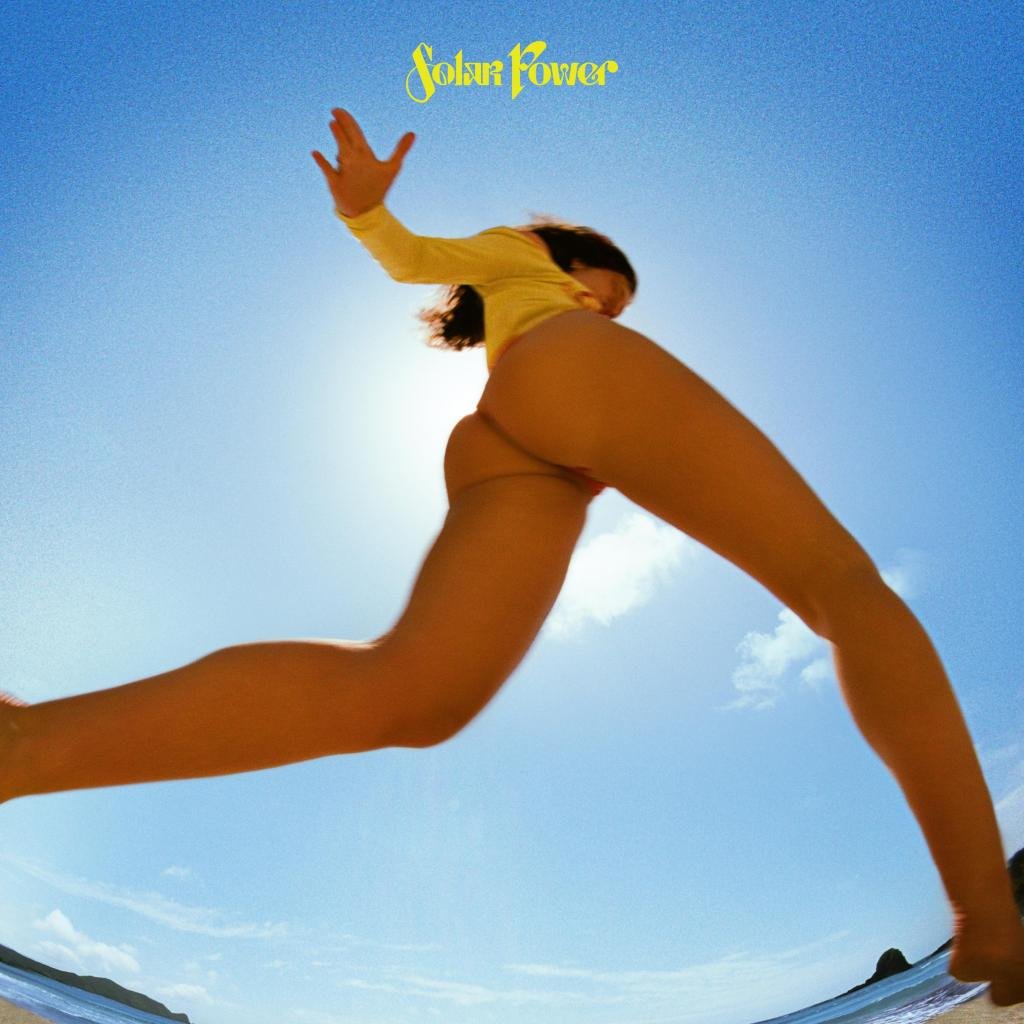Album Review: Lorde, 'Solar Power'
Just as the Eiffel Tower and Statue of Liberty are monuments, such is a Lorde album. That is to say that Lorde's albums signify specific moments in life in the same way that the aforementioned monuments symbolize cities like Paris and New York City. The Grammy-winner's first two albums, Pure Heroine and Melodrama, perfectly encapsulate the most uncomfortable, vulnerable, and triumphant moments of adolescence and young adulthood. With a pen that is unrivaled by any of her peers, Lorde is the kind of songwriter whose honesty is simultaneously a weapon and a bandage. Her lyrics and melodies cut to the deepest part of herself and her listeners, but she always makes sure that there's some moment of reprieve in that journey inward. Lorde's first two albums were primarily concerned with these vast inward journeys to figure out life. Now, at age 23, Solar Power finds Lorde journeying outward. The album is a sunny conglomerate of utopias, their corresponding dystopias, and wry commentary on the passage of time. Steeped in the seemingly disparate thematic influences of climate change and religion, Solar Power is Lorde's attempt to seek happiness in a world that does its best to stifle that feeling. But her attempt is futile, and she knows it. The winks and nods peppered through her lyrics and vocal delivery tap into the satirical nature of cults in popular culture; Lorde's commentary on cults and wellness culture is ultimately a reminder that true happiness cannot be achieved through apparatuses that are consciously trying to curate happiness. You have to take it one step at a time (word to "Oceanic Feeling"). Solar Power has its fair share of stumbles, but it's a formidable display of songwriting prowess and artistic growth.
When Lorde first introduced the Solar Power universe, she gifted us with the breezy title track. "Solar Power," with its warm horns and background vocals from Phoebe Bridgers and Clairo, is still a stunner, but it shines even brighter when contextualized in the album. As the album's second track, "Solar Power" follows "The Path," one of the most phenomenal songs of the year so far. "Born in the year of OxyContin / Raised in the tall grass / Teen millionaire having nightmares from the camera flash," Lorde coos. These opening lines immediately situate us in the current landscape of Lorde's psyche. She's dismantling and casting away the dangerous glow of celebrity, and instead embracing and reasserting her humanity and mortality. The pensive guitars streamline the general ballad structure of the song before launching into a lush moment of release in the chorus. If every album is a road stop in Lorde's journey through figuring life out, this third stop, Solar Power, is Lorde at her most secure and grounded. The song's chorus opens with "Now if you're looking for a saviour, well, that's not me / You need someone to take your pain for you? / Well, that's not me." Even though she assumes the role of cult leader in the very next song, she makes it clear from the onset that she cannot be the one to lead people to happier days because she herself is still searching for guidance from The Sun on the paths that she's chosen. This is the moment where Solar Power chooses to hold itself together; Lorde is in on the whole operation.
Universal
It comes as no surprise that Lorde dedicates an entire song to the world's most infamous simultaneous utopia-dystopia. That predictability does damper a few of the tracks on Solar Power, but with songwriting so sharp the set never truly sinks. "California" attempts to pull back the curtain on Lorde's fraught relationship with the state. It's a fine track, especially when Lorde lifts the "li" syllable in California to achieve the breezy feel that echoes across the album. There's an eeriness about the song that is explored further on tracks like "Fallen Fruit" and "Leader of a New Regime," but the odd placement of the track makes things feel unbalanced. In fact, most of the sequencing on Solar Power feels off; Lorde chooses to abandon any sense of continuity between the themes she explores even if there's a clear line that can be followed. "California" is succeeded by a pair of tracks — "Stoned At the Nail Salon" and "Fallen Fruit" — that are set in conversation with each other and elevate the whole record. The former is a Chemtrails Over the Country Club-esque ballad about getting older. Originally introduced as one of the album's pre-release singles, "Stoned At the Nail Salon" balances dry humor with constant reminders of mortality. Lorde shifts from "spend all the evenings you can with the people who raised you" to "maybe I'm just stoned at the nail salon... again" with a sly grin and a knowing wink. Instead of feeling crushed by the shadow of mortality, Lorde uses this song to plan a way to navigate the inevitability of her mortality — the same one that she embraced in "The Path." If "Stoned" is a more specific examination of the passage of time, then "Fallen Fruit" explores time on a more macro level. A song with slight Eagles vibes, "Fallen Fruit" combines religious imagery and heartbreaking science to unpack the climate crisis and humanity's place in it. "We had no idea the dreams we had were far too big," she posits. Whether it's the dreams for young adulthood that informed the adolescence of Pure Heroine or the emotional odyssey that was Melodrama, Solar Power is interested in exploring what to do when you accept that some dreams are unattainable. Deep down true happiness is an unlikely possibility, but we still try to make that happen even if it sometimes makes us more unhappy in the process.
Solar Power's light begins to dim towards the middle of the album. "Secrets from a Girl" is uncharacteristically on-the-nose for Lorde; it sounds like the song version of a cheesy 2000s Disney Channel Original Movie. The plain lyrics could have been excused if the music was interesting enough to hold any morsel of attention, but it isn't. "The Man With the Axe" faces a similar problem. This time, the lyrics are gorgeously poetic; "You felled me clean as a pine / The man with the axe and the look in his eyes" Lyrically, it's one of the high points on the album, but because the album's production tends to fall into monotony for the sake of cohesiveness, it's difficult to stay engaged. The title track, "Fallen Fruit," and "Stoned" do well when it comes to exploring different shades of the scaled-back guitar-reliant psychedelic-pop/rock sound. Unfortunately, the middle of the album does not care to keep that up. "Big Star," a song inspired by Lorde's grief following the passing of her beloved pet dog, is strikingly empty. From "Ribs" to "Writer in the Dark," Lorde has repeatedly proven herself to be a singular talent when it comes to conveying the highest heights of emotion. For some reason, "Big Star" falls flat on its face. Maybe it's the sameness of the production, or maybe Lorde is just too self-aware at this point on the record, but something just doesn't click. This shaky run of tracks finds a brief moment of reprieve in "Dominoes," but Lorde truly gets back on track with the final two songs.
"Mood Ring" brings us back to the beginning of the album with its satirical take on wellness culture and how ironic it is that we rely on artificial things to achieve genuine happiness. This is easily one of the most arresting melodies on the album, and it grabs the ear in a way that the previous run of tracks failed to do. "Take me to some kinda place (Anywhere) / Watch the sun set, look back on my life," Lorde sings on the outro. At once, the sun functions as a guiding light and as a symbol of peace for Lorde. The sun shows her "the path," but it also centers her soul when her mood ring fails to show her the happiness that she's been searching and longing for. The album's final track, "Oceanic Feeling," is a six-minute triumph that reminds us of why we fell in love with Lorde in the first place. It's a heartfelt rumination on her friends, her home, her family, her past, her future, and the constant process of searching for healing and light ("Now the cherry-black lipstick's gathering dust in a drawer / I don't need her anymore / 'Cause I got this power"). Despite the album's stumbles, Lorde's songwriting is as smart as ever, and, for the most part, she handles this new sound fearlessly. Solar Power is not as sharp as its predecessors, but it does mark new ground for Lorde as a person and as an artist. She's on this journey for herself and herself alone, and that's a level of commitment that you can't help but admire.
Key Tracks: "Fallen Fruit" | "Mood Ring" | "Oceanic Feeling" | "The Path"
Score: 73






